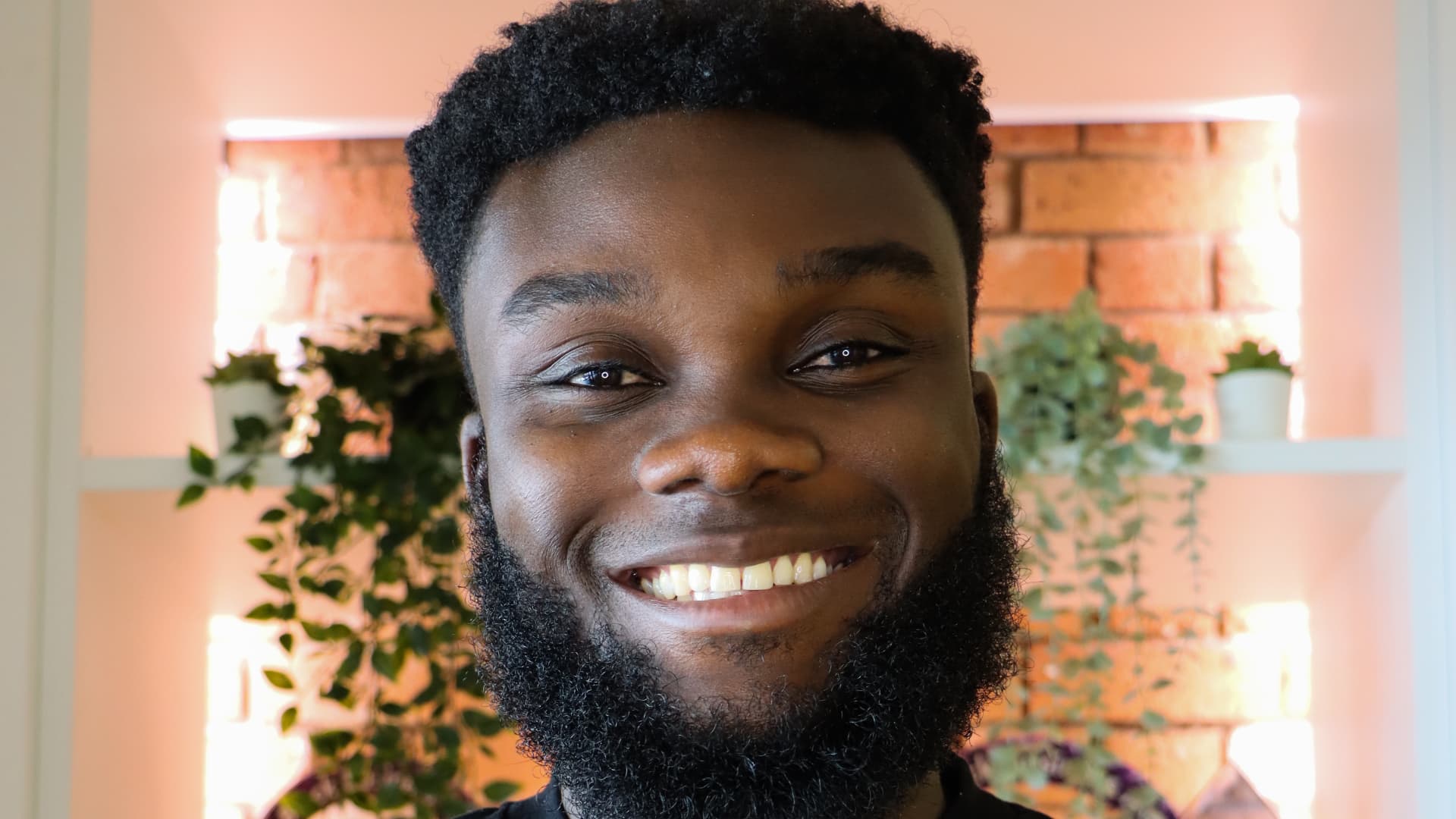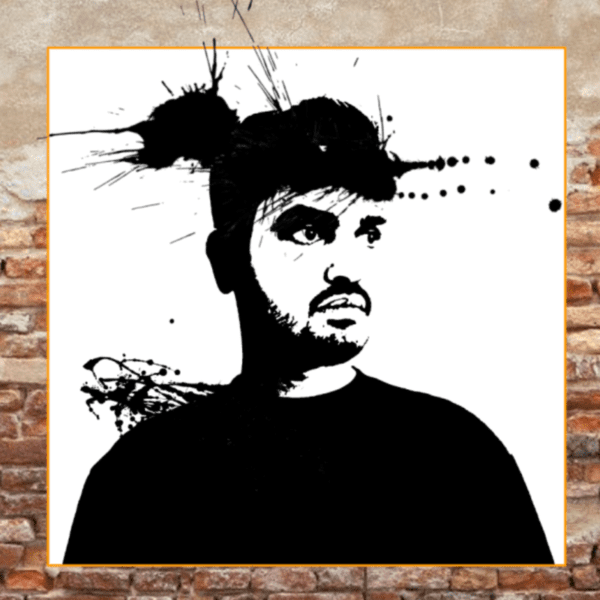Timothy Armoo, co-founder and former CEO of Fanbytes.
Timothy Armoo
Timothy Armoo is a 29-year-old millionaire who became rich by selling his influencer marketing firm for eight-figures, but the young, Black entrepreneur had to beat the odds to find success.
Armoo, the co-founder and former CEO of Fanbytes, hails from what was one of the most impoverished areas in south London and as a teenager lived with his dad on a fourth floor council estate — public housing — on Old Kent Road in the borough of Southwark.
“It was the poorest place,” Armoo told CNBC Make It in an interview. “It was at the peak of when Peckham, Brixton and Old Kent Road were having their beef [British slang for conflict] so it was in the middle of the gang warfare. Between 2005 and 2012 was the peak of the South London gangs.”
Trust for London names Southwark as one of 19 boroughs that have “significantly” higher levels of poverty compared to England as a whole.
Armoo knew he was poor, but he had a keen entrepreneurial spirit and managed to cobble together some money by starting his own tutoring business at 14-years-old.
He taught fellow students math and as more students approached him for help with other subjects, he started connecting them with tutors he knew and took a cut of the fee.
“I remember very specifically the first time I connected these two people,” he said. “Jane needed some help with chemistry, and I connected her to Harry, and Harry helped her, and I got £5 (around $6.6) in commission for connecting them, because [the business] charged £15 an hour.”
It was only when Armoo received a scholarship to go to a private boarding school when he was just 16-years-old to complete his A-Levels — equivalent to the Advanced Placement program in the U.S. — that his entire view of wealth changed.
“I remember one day this kid got picked up in a helicopter,” he recalled. “It opened up my eyes that there is a way to build wealth and you don’t have to be Richard Branson. There’s a whole world of people in between there.”
He started to realize that “money was a tool” to change his life and the fastest way to escape poverty was to start his own business.
“When I was growing up on that fourth floor council estate, I would always say to myself ‘This is temporary. This is temporary. This is temporary,'” he said. “I didn’t get to choose the circumstances I was in at 10 years old … but at least I got to decide what ends up happening.”
Here’s how Armoo went from living in a council estate to starting his own business and then becoming a millionaire before the age of 30.
Your first business doesn’t need to be a ‘billion dollar idea’
Armoo was 17-years-old and still completing his A-Levels when he sold his first business, an online blog called Entrepreneur Express, for £110,000, after only 11 months of running it.
“Everyone’s aspiration was to go to Oxbridge [The Universities of Oxford and Cambridge] and mine was just ‘I want to make money and I want to get out of my s—ty situation,'” Armoo said.
The 29-year-old interviewed high-profile figures for Entrepreneur Express from the likes of Virgin Group co-founder Richard Branson, the face of the British TV show “The Apprentice” Alan Sugar and actor James Caan, but making the blog profitable was a challenge.
Initially he had a print version of the blog ready to be taken in by university society groups but as the deadline drew closer, he realized he didn’t have enough advertising to sustain the print publication.
The young entrepreneur then turned his attention to placing advertisements on the online blog. “This is where I had my success,” he said.
He said his “hack” was the distribution of content from the blog via viral social media accounts on Instagram and Facebook such as meme pages and feel-good quote pages.
Armoo would package the articles into social media posts with a hook like “10 quotes to…” and this would drive people from the post to his site.
“The way that we made money was by two things: one was programmatic advertising — so just banner ads, but I would also then sell sponsored slots to tax firms, law firms, and accountancy firms so they could get a direct ROI [return on investment.]”
Armoo said your first business doesn’t need to be “a billion dollar idea.” Instead “your first business should just get you on the first money ladder.”
He echoed the advice of the late investment guru Charlie Munger who said that making the first $100,000 is the hardest “but you gotta do it.”
Armoo agreed saying: “If you optimize for that first £100,000 … you slog, and you go crazy for it, life just becomes easier, because then you know a bit of the playbook… now, at the very least, you have a financial cushion to make choices which are not as risky.”
“You build wealth by selling the business”
Armoo co-founded Fanbytes with Ambrose Cooke and Mitchell Fasanya in 2017.
Tim Armoo
Armoo considers himself an early pioneer in the burgeoning creator economy industry because he co-founded the influencer marketing firm Fanbytes in 2017 with Ambrose Cooke and Mitchell Fasanya.
Fanbytes’ goal was to connect brands with influencers to create advertising campaigns — a popular marketing strategy at the time as companies transitioned from traditional advertising to using influencers on social media to sell products.
Their strategy worked as Fanbytes amassed a notable roster of clients from Nike, Samsung, Amazon and ITV, Armoo said.
One 2016 study by TapInfluence found that social media influencer marketing was 11 times more effective than banner ads on a website, which is why brands were flocking to influencers, according to CNBC reporting.
“I saw the rise of influencer marketing in the U.S.,” Armoo said and he decided to replicate the idea in the U.K.
You don’t always need to invent something new as an entrepreneur, instead you can “service existing demand,” Armoo advised.
The company was “raising dribs and drabs,” across different stages before ultimately raising £2 million in funding.
“First ever bit of investment was like 15 grand, then 40 grand, and then 120 grand, and then 300 grand, and then 600 grand,” Armoo said.
His work with Fanbytes landed him on the Forbes 30 Under 30 list in 2021, and soon after in October that year, offers started rolling in from people wanting to purchase Fanbytes.
He then appointed a bank to coordinate deals for the company which went on to find six companies interested in acquiring Fanbytes.
Armoo, who was 27-years-old at the time, and his co-founders sold Fanbytes to Brainlabs, a global digital marketing agency, in an eight-figure deal in May 2022, which made them all multi-millionaires.
“The aim was always to build something that could be sold,” Armoo said. “I spoke to this guy once when I was pretty early on in my journey, and he said that you can make money while running a business, but you build wealth by selling the business.”
Armoo always knew that he didn’t want to run Fanbytes for the rest of his life.
“Fanbytes could have been selling shoelaces to frogs and I still would have been passionate if I thought this is a business we are building and it has the end goal of being something that can achieve financial security,” he said.
‘I never saw myself as a Black entrepreneur’
Armoo and his co-founders sold Fanbytes to Brainlabs in May 2022.
Timothy Armoo
Black founders often struggle to raise capital. In fact, Black-founded startups in the U.S. only raised 0.48% of all venture dollars allocated in 2023, per Crunchbase data previously reported by CNBC.
This follows a decline in funding being given to Black-owned businesses since 2020, after the murder of George Floyd and the social justice movement that followed his death.
Meanwhile, 87% of non-white founders said they faced more barriers to fundraising compared with 79% of white founders, according to Atomico’s State of European Tech Report 2023.
Armoo says it was all about perspective and believed that being Black didn’t hold him back.
“Everyone remembered the bearded Black guy in a room full of white people. Everyone remembers that and so for me, it increases how memorable you are,” he said about his experience of going to events to meet investors.
He explained that you can either walk into a room and feel insecure because there aren’t that many people that look like you, or you can believe that that factor will help you standout.
“I never saw myself as a Black entrepreneur. I always just saw myself as an entrepreneur,” he said.
“I think maybe I’m too logical for my own good. I was like ‘investors want to make money. This business is going to make them money. I’m going to show them how it makes them money.’ That’s it. I didn’t really think they cared if it was coming from the mouth of a white guy or a Black guy.”
Now, as a 29-year-old millionaire, Armoo is confident that this world view has “served him well.”
















